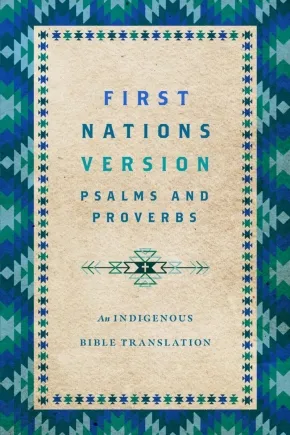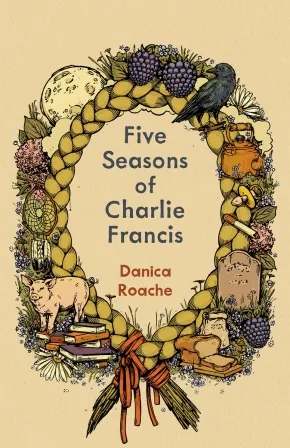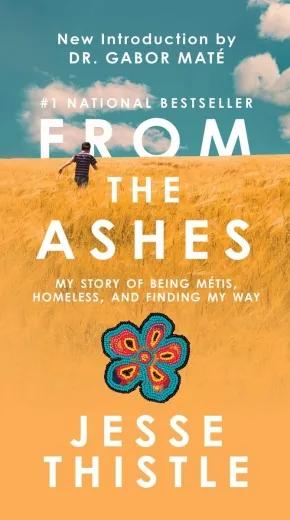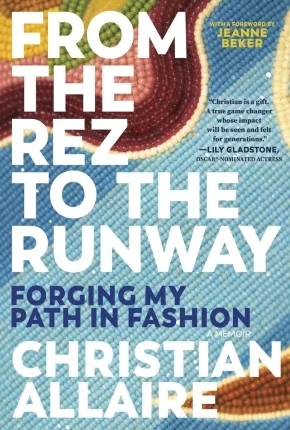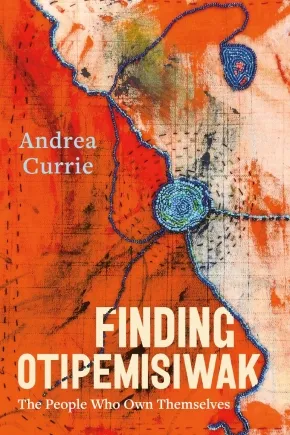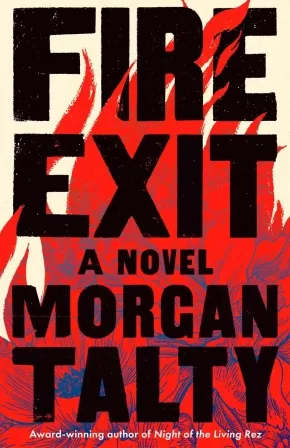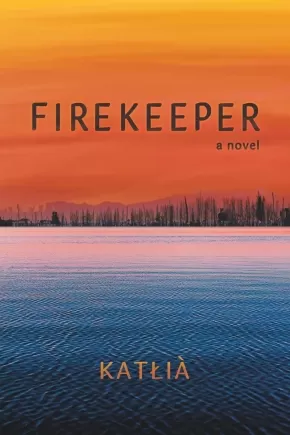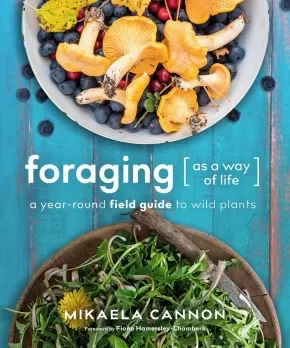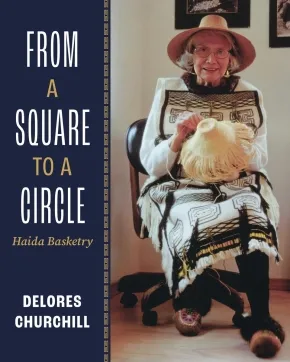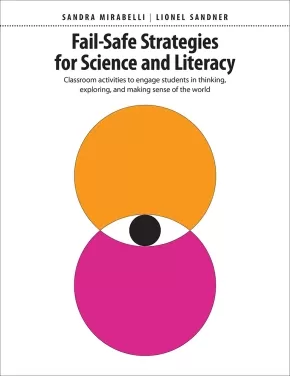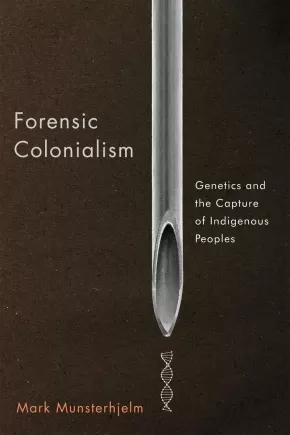
Browse Books for Adults
1
-
15
of
71 Results; (Books Starting With "F")
Sort By
Go To
of 5
First Nations Version Psalms and Proverbs: An Indigenous Bible Translation
$26.99
Format:
Paperback
Text Content Territories:
Indigenous American; Native American;
Reading Level: N/A
ISBN / Barcode: 9781514007273
Synopsis:
Synopsis:
Discover the rich tapestry of human emotion and divine wisdom with the First Nations Version Psalms and Proverbs. The latest volume from the critically acclaimed First Nations Version translation brings the ancient Sacred Songs and Wise Sayings of the Hebrew Scriptures to life through the vibrant, poetic imagery of Native American oral storytelling.
Discover Psalms and Proverbs Reimagined Through the Poetic Language of Native Storytellers:
Father Sky is telling us the story of the shining-greatness of the One Above Us All. The starry tent above us shows the beauty that Creator’s hands have made. Day after day, the story is told, and night after night, their wisdom fills the sky. Even though the skies above have no spoken words, all creation has heard their message.Psalm 19:1-3
From the strength of your heart, put all your trust in Grandfather, and do not hold yourself up with weak human thinking. As you walk the road of life, make every step a prayer. Grandfather will then make your eyes straight and your paths safe.Proverbs 3:5-6
Whether you're seeking solace, strength, or spiritual insight, the First Nations Version Psalms and Proverbs will guide you with its profound expressions of praise and trust in the Creator. Step into the harmonious blend of ancient wisdom and indigenous tradition to discover a spiritual experience that speaks directly to your heart.
Reviews
"The First Nations Version is far and away the most creative Bible translation I've ever read. It's an exciting alternative to the boring, stodgy renderings that have dominated the English market for centuries. All readers can open the FNV and experience old passages in new lights. Talk about it with your kids. Study it in churches and classrooms. Use it in worship. The Bible becomes alive!"— Matthew Schlimm, professor of Old Testament at the University of Dubuque Theological Seminary
Additional Information
192 pages | 6.00" x 9.00" | Paperback
Five Seasons of Charlie Francis
$24.95
Format:
Paperback
Text Content Territories:
Indigenous Canadian; First Nations; Mi'kmaq (Mi'gmaq);
Reading Level: N/A
ISBN / Barcode: 9781774714645
Synopsis:
Synopsis:
A bold, refreshing, and darkly funny debut novel about a mixed-ancestry Mi'kmaw woman balancing academia, grief, love, and new motherhood, for fans of Fleabag and Amanda Peters.
When the tides in the Cobequid Bay went out and left stretches of mudflats, I could walk halfway to the other shore. Sometimes the mud engulfed my feet, right up to my ankles, and made it hard to move. The longer you stayed stuck, the harder it was to keep going.
Charlie Francis's five-year plan has gone to shit. She was supposed to greet the new millennium by diving head-first into a master's degree, but her thesis has ground to a halt, Y2K was a bust, her rambunctious family and claustrophobic hometown are driving her around the bend—and the maybe-love-of-her-life, Adam, keeps joking about her moving home to marry him and have his babies.
When Charlie's beloved uncle—the same person who told her to get out of town and never look back—dies suddenly, Charlie leans into her independence, breaking Adam's heart and rushing headlong into an academic career despite the baked-in racism of the predominantly white institution. When she unexpectedly becomes pregnant, she has to navigate being a (mostly) single mother on top of everything else.
Charlie finds herself at a crossroads—and only so much stress-baking can keep reality at bay. How can she reconcile being a student of history within the colonial system that exploited her ancestors? How can she be a good mother when she can barely afford groceries? And how can she be a proud Mi'kmaw woman when the world seems determined to keep her down?
Maybe it's time for a new five-year plan.
With grit, humour, a lovable cast, and the nostalgia of the early aughts, this bold and refreshing novel from a powerful new voice in Indigenous fiction explores grief, the complex bonds of family, and cultural identity.
Additional Information
320 pages | 5.50" x 8.50" | Paperback
From the Ashes: My Story of Being Métis, Homeless, and Finding My Way (PB)
$13.99
Format:
Paperback
Text Content Territories:
Indigenous Canadian; First Nations; Cree (Nehiyawak); Métis;
Reading Level: N/A
ISBN / Barcode: 9781668213728
Synopsis:
Synopsis:
In this extraordinary and inspiring debut memoir, Jesse Thistle, once a high school dropout and now a rising Indigenous scholar, chronicles his life on the streets and how he overcame trauma and addiction to discover the truth about who he is.
If I can just make it to the next minute... then I might have a chance to live; I might have a chance to be something more than just a struggling crackhead.
From the Ashes is a remarkable memoir about hope and resilience, and a revelatory look into the life of a Métis-Cree man who refused to give up.
Abandoned by his parents as a toddler, Jesse Thistle briefly found himself in the foster-care system with his two brothers, cut off from all they had known. Eventually the children landed in the home of their paternal grandparents, but their tough-love attitudes meant conflicts became commonplace. And the ghost of Jesse’s drug-addicted father haunted the halls of the house and the memories of every family member. Struggling, Jesse succumbed to a self-destructive cycle of drug and alcohol addiction and petty crime, spending more than a decade on and off the streets, often homeless. One day, he finally realized he would die unless he turned his life around.
In this heartwarming and heartbreaking memoir, Jesse Thistle writes honestly and fearlessly about his painful experiences with abuse, uncovering the truth about his parents, and how he found his way back into the circle of his Indigenous culture and family through education.
An eloquent exploration of what it means to live in a world surrounded by prejudice and racism and to be cast adrift, From the Ashes is, in the end, about how love and support can help one find happiness despite the odds.
Awards
- 2020 Indigenous Voices Awards Winner for Published Prose in English
- Winner, Kobo Emerging Writer Prize Nonfiction
- Winner, High Plains Book Awards
- An Indigo Book of the Year
Reviews
“From the Ashes hits you like a punch in the gut. It’s an unflinching, heartrending and beautifully written story of survival against seemingly impossible odds. But it’s also a book that should make you furious. Thistle paints a vivid portrait of a country seemingly incapable of doing right by Indigenous youth or by those struggling with homelessness, addiction and intergenerational trauma. That he survived to tell this story is truly a miracle. Still, one question haunts me after finishing this powerful and devastating book: How do we ensure that the next generation isn’t forced to navigate a broken system that takes their lives for granted and fails them at every turn? My greatest hope, then, is that From the Ashes will be the wakeup call Canada needs.” — IAN MOSBY, historian and author of Food Will Win the War
Educator Information
Caution: Deals with mature subject matter.
Additional Information
368 pages | 6.00" x 9.00"
From the Rez to the Runway: Forging My Path in Fashion
$24.99
Format:
Paperback
Text Content Territories:
Indigenous Canadian; First Nations; Anishinaabeg; Ojibway; Nipissing First Nation;
Reading Level: N/A
ISBN / Barcode: 9781443470629
Synopsis:
Synopsis:
Growing up on the Nipissing First Nation reserve in Northern Ontario, Christian Allaire wanted to work in the fashion industry, a future that seemed like a remote, and unlikely, dream
He was first introduced to style and design through his culture’s traditional Ojibwe powwow regalia—ribbon skirts, beaded belts, elaborate headdresses. But as a teenager, he became transfixed by the high-fashion designs and runway shows that he saw on Fashion Television and in the pages of Vogue.
His unwavering interest in fashion led him to complete a journalism degree so he could pursue his goal of becoming a full-time fashion writer. After landing his first big magazine job in New York City, Allaire found himself working at the epicentre of the international fashion industry. His dream had come true. Yet he soon realized the fashion world—and his place in it—wasn’t always quite as glamorous as he imagined it would be.
From grinding as an unpaid intern, to becoming a glitzy (but overworked) fashion editor, Allaire writes with feeling about the struggle to find his place—and community—in the highly exclusive world of fashion. And he recounts, with great candour, the difficulty of balancing his ambitions with the often-inaccurate perceptions—including his own—of his culture’s place in the realm of fashion.
Full of joy, honesty, adversity, and great clothes, From the Rez to the Runway is a gripping memoir about how to achieve your dreams—and elevate others—while always remaining true to yourself.
Reviews
“Christian is a gift. He embodies the precious intersection between arts and advocacy, and is a truly grounded and inspired human being. In having such a curated, unique and sharp eye for both classic and cutting edge design, coupled with an unshakable commitment to elevating Indigenous designers, he has carved a necessary space which elevates Indian Country and the world of fashion as a whole. A true game changer whose impact will be seen and felt for generations.” — Lily Gladstone, Oscar-nominated actor
Funny, honest and utterly charming, From the Rez to the Runway lends the cliche fashion editor origin story a refreshing new perspective. With a true sense of passion and wide-eyed wonder, Christian Allaire pursues his personal quest for creativity, purpose and self-discovery and finds that staying true to one’s self brings the greatest rewards. Brimming with moving family memories from the reservation and hilarious fashion misadventures alike, the book is a must-read for all the so-called outsiders and misfits who’ve ever dared to follow their dreams. — Chioma Nnadi, Head of Editorial Content, British Vogue
From beadwork to Burberry, Christian Allaire is a force in fashion. He paints a portrait of a complicated industry rarely seen behind the scenes — let alone traversed by Indigenous writers. In this compelling and inspiring memoir, Allaire details how he carries community with him through every glass ceiling he shatters. His work, and this memoir, are a triumph. After all, ‘Don’t mess with a rez kid.’ — Devery Jacobs, Filmmaker and Actor, Reservation Dogs
There is a new generation of Fashion Transformers and Christian Allaire is leading the movement. Allaire has been chosen by spirit to shine a light on Indigenous Fashion and Art, and he has done so at the highest levels, from New York to Paris, and all around the world. He is a door opener for the truth, power, and beauty of true fashion and its creators. — Kelly Cutrone, founder of People’s Revolution and New York Times bestselling author
Additional Information
272 pages | 6.00" x 9.00" | Paperback
Finding Otipemisiwak: The People Who Own Themselves
$24.95
Format:
Paperback
Text Content Territories:
Indigenous Canadian; Métis;
Reading Level: N/A
ISBN / Barcode: 9781551529554
Synopsis:
"Weaving myriad forms - poetry, family history, personal essay, cultural criticism - Andrea Currie tells her story with mercy and force, revealing the warp and weft of the racist system that codified the robbery of Indigenous children through the Sixties Scoop and the devastating consequences for those children, their families, and their communities. In this rigorous and beautiful debut, Currie's unfaltering pursuit of complicated truths lifts into the light the possibility of healing, as she seeks and finds her own lost family, writing her story into theirs. Finding Otipemisiwak is a necessary, searing, and luminous gift of a book." —Rebecca Silver Slayter, author of The Second History
Synopsis:
A Sixties Scoop survivor's journey back to her Nation and the truth of who she is
Otipemisiwak is a Plains Cree word describing the Metis, meaning "the people who own themselves."
Andrea Currie was born into a Metis family with a strong lineage of warriors, land protectors, writers, artists, and musicians - all of which was lost to her when she was adopted as an infant into a white family with no connection to her people. It was 1960, and the Sixties Scoop was in full swing. Together with her younger adopted brother, also Metis, she struggled through her childhood, never feeling like she belonged in that world. When their adoptions fell apart during their teen years, the two siblings found themselves on different paths, yet they stayed connected. Currie takes us through her journey, from the harrowing time of bone-deep disconnection, to the years of searching and self-discovery, into the joys and sorrows of reuniting with her birth family.
Finding Otipemisiwak weaves lyrical prose, poetry, and essays into an incisive commentary on the vulnerability of Indigenous children in a white supremacist child welfare system, the devastation of cultural loss, and the rocky road some people must walk to get to the truth of who they are. Her triumph over the state's attempts to erase her as an Indigenous person is tempered by the often painful complexities of re-entering her cultural community while bearing the mark of the white world in which she was raised. In Finding Otipemisiwak, one woman's stories about surviving, then thriving as a fully present member of her Nation and the human family are a portal. Readers who walk through will better understand the impact of the Sixties Scoop in the country now called Canada.
Reviews
"Finding Otipemisiwak is a stunning, illuminating, and gutting journey through the life of a Sixties Scoop survivor. Page turning, genre bending, personal and political, staggeringly honest, heartbreaking, and glorious, it is a story of resistance, possibility, healing, and hope, of reclamation and reconciliation. With words to stop you in your tracks, Currie braids together heart, soul, and smarts in memoir, poems, threads of her family histories, the Red and Assiniboine Rivers, unflinching questions, and courage, making herself magnificently vulnerable. This book cuts to the heart of the Sixties Scoop crisis, addresses the intergenerational trauma of not only its survivors but its effects on all of us. It gives us all a chance to relearn the history of Canada and to dream of a healing in it. It is part of the truth-telling change this country so desperately needs." — Camille Fouillard, author of Precious Little
"Finding Otipemisiwak is a beautifully written story of tragedy and triumph, as well as one of escape from a false family into the embrace of a loving one. Threading through Currie's remarkable tale is a heart-wrenching bond between her and her adoptive brother, Rob. This book contains a story that desperately needs to be told." —Frank Macdonald, author of A Forest for Calum
"This book takes on the quality of a great radio documentary, splicing prose, poetry, and actuality as Andrea Currie cross-examines colonization and the story that settler society placed over her like a net. When she comes to know who she and her people are, there is joy and there is sadness, but also truth and belonging, a firm scaffolding as Andrea comes to own herself. Finding Otipemisiwak is a powerful act of resistance and gripping to read. It is a balm. —Shelagh Rogers, founding host and co-creator of The Next Chapter CBC Radio
"Finding Otipemisiwak is a poignant story of self-discovery, weaving Red River Metis heritage with personal narrative and ancestral lore and honouring resilience amidst the Sixties Scoop." —Albert G.D. Beck, Director, Manitoba Metis Federation
"Weaving myriad forms - poetry, family history, personal essay, cultural criticism - Andrea Currie tells her story with mercy and force, revealing the warp and weft of the racist system that codified the robbery of Indigenous children through the Sixties Scoop and the devastating consequences for those children, their families, and their communities. In this rigorous and beautiful debut, Currie's unfaltering pursuit of complicated truths lifts into the light the possibility of healing, as she seeks and finds her own lost family, writing her story into theirs. Finding Otipemisiwak is a necessary, searing, and luminous gift of a book." —Rebecca Silver Slayter, author of The Second History
Additional Information
272 pages | 6.00" x 9.00" | Paperback
Fire Exit: A Novel
$34.00
Format:
Hardcover
Text Content Territories:
Indigenous American; Native American; Penobscot;
Reading Level: N/A
ISBN / Barcode: 9781039056428
Synopsis:
Synopsis:
Does she remember this day? Does she remember it at all? Does she know this history—this story—her body holds secret from her?
From the porch of his home, Charles Lamosway has watched the life he might have had unfold across the river on Maine’s Penobscot Reservation. On the far bank, he caught brief moments of Roger and Mary raising their only child, Elizabeth—from the day she came home from the hospital to her early twenties. But there’s always been something deeper and more dangerous than the river that divides him from this family and the rest of the tribal community. It’s the secret that Elizabeth is his daughter, a secret Charles is no longer willing to keep.
Now it’s been weeks since he’s seen Elizabeth and Charles is worried. As he attempts to hold on and care for what he can: his home and property, his alcoholic, quick-tempered and big-hearted friend Bobby, and his mother, Louise, who is slipping ever-deeper into dementia—he becomes increasingly haunted by his past. Forced to confront a lost childhood on the reservation, a love affair cut short, and the death of his beloved stepfather, Fredrick, in a hunting accident—a death that he and Louise cannot agree where to lay the blame—Charles contends with questions he’s long been afraid to ask. Is it his secret to share? And would his daughter want to know the truth?
From award-winning author of Night of the Living Rez, Morgan Talty’s debut novel, Fire Exit, is a masterful and unforgettable story of family, legacy, bloodlines, culture and inheritance, and what, if anything, we owe one another.
Reviews
“Fire Exit, Morgan Talty’s debut novel, is utterly consuming. With this book, Talty more than fulfills the promise of his glorious short story collection, Night of the Living Rez. The storytelling is both spellbinding and quietly devastating. The novel is ultimately about family and belonging, about the stories we need to know even when they threaten to burn our lives down. A father desperately wants to let his daughter know about her body’s secret history, even while his mother forgets her son altogether. This book is filled with humor, and humanity’s strange wonder at its own desperation and depravity, as only Talty can do, with his subtle charm and crystalline prose, his sober reckoning with what love can and cannot do, what healing is and is not possible in our families. The novel absolutely smolders.” —Tommy Orange
“Fire Exit is gorgeous. A genuinely original examination of the costs we pay to tell ourselves certain stories about who we are and where we come from. Talty is a revelation on matters of the heart, particularly the tenderness and warfare of contemporary manhood. This is that rare thing: a frankly honest novel about hard things written without a trace of bitterness. I loved it.” —Brandon Taylor
“Talty’s writings feels to me like a gift of many lifetimes. Forgiveness, Morgan shows us, is also the work of a lifetime. The people to whom we feel closest can somehow be right beside us in the kitchen and simultaneously on some unreachably distant planet. People rotate away from each other for days or seasons at a time, and it’s miraculous when they return to find each other again, turning towards each other instead of away. It’s a treacherous thing, to love another person in this world that mixes so much beauty with so much sorrow. Thank you for reminding us, Morgan, that it is the necessary thing.” —Karen Russell
Additional Information
256 pages | 5.50" x 8.25" | Hardcover
Firekeeper: A Novel
$24.00
Format:
Paperback
Text Content Territories:
Indigenous Canadian;
Reading Level: N/A
ISBN / Barcode: 9781773636573
Synopsis:
Synopsis:
Nyla has an affinity to fire. A neglected teen in a small northern town—trying to escape a mother battling her own terrors—she is kicked out and struggles through life on the streets. Desperate for love, Nyla accidentally sets fire to her ex’s building and is then incarcerated for arson. Through community-led diversion, Nyla finds herself on a reserve as their firekeeper. But when climate change–induced wildfires threaten her new home, she knows intimately how to fight back.
The fourth book from acclaimed writer Katłıà brings a Northern Indigenous perspective to the destructive effects of ongoing colonialism. Displaying Katłıà’s enthralling storytelling style, Firekeeper is a coming-of-age tale that addresses intergenerational trauma by reclaiming culture, belonging and identity.
Join Nyla on her healing journey through the fire to sacred waters.
Reviews
“Katłıà’s Firekeeper is an enchanting page-turner of a novel that captured my heart from start to finish. It’s an essential story about finding spirit, family, and home, told through one of the strongest and most authentic protagonists I’ve ever read. I felt like I was right there with Nyla through all her tragedies and triumphs, which is testament to Katłıà’s smooth and heartfelt prose. This book is a celebration of the resilient spirit and leadership of Indigenous women.”—Waubgeshig Rice, author of Moon of the Crusted Snow
“Written with searing truth and genuine heart, breathtaking at times in its description of life, living, dying and death - Firekeeper is a loving testament to the power of kindness and of gentleness. Piercing and honest, with an eye for detail in chaos, the writing and voice are humble and humbling. This is Katłı̨̀ą’s best work to date.”— Tracey Lindberg, writer, scholar, Indigenous Rights activist and the author of Birdie
Additional Information
176 pages | 5.50" x 8.50" | Paperback
First Métis Man of Odesa
$18.95
Format:
Paperback
Text Content Territories:
Indigenous Canadian; Métis;
Reading Level: N/A
ISBN / Barcode: 9780369105127
Synopsis:
Synopsis:
Matt and Masha hit it off during a theatre research trip in Ukraine. At first they seem like opposites: Masha loves the sea, Matt loves mountains. Masha is Ukrainian, Matt is Métis. But the passionate spark ignited between them cannot be denied. Despite the improbabilities of a cross-continental relationship, a few fairy-tale visits overseas solidifies their bond. But when it seems distance could be the only obstacle in their path, a series of extreme circumstances put their commitment to the ultimate test.
Based on actual events, First Métis Man of Odesa is the extraordinary true story of a whirlwind romance that withstands a global pandemic, a surprise pregnancy, and the Russian invasion of Ukraine. Transcending the usual tropes of documentary theatre, this heartwarming how-we-got-together tale turns art of the here and now into a catalyst for action and a hopeful ode for a better future.
Awards
- 2024 Dora Mavor Moore Award for Outstanding New Play winner
Reviews
“A star-crossed, windswept, war-torn romcom that waltzes back and forth across the threshold that separates dreams from nightmares.” — Ben Waldman, Winnipeg Free Press
“Many of the best tales in the show are so deeply improbable, or so straightforwardly honest, that the plot lines could never have held up as fiction; but as the true stories they are, they triumph.” — Julia Peterson, Saskatoon StarPhoenix
“For all its full-blown drama, First Métis Man of Odesa retains a dreamy charm without ever letting go of the truth.”— Liane Faulder, Edmonton Journal
Additional Information
80 pages | 5.12" x 7.62" | Paperback
Flourishing Kin: Indigenous Wisdom for Collective Well-Being
$26.99
Format:
Paperback
Text Content Territories:
Indigenous;
Reading Level: N/A
ISBN / Barcode: 9781649632043
Synopsis:
Synopsis:
From Indigenous scholar Yuria Celidwen comes a first-of-its-kind book about our aspiration for sustainable, collective flourishing through Indigenous wisdom, traditions, and practices that bridge Indigenous and Western knowledges and ways.
How do we cultivate happiness? When facing the monumental challenges of our world, we often end up disconnecting in order to focus on our mental health. Dr. Yuria Celidwen explains this focus on our own state of mind alone is precisely why so many of us struggle to flourish. “What’s been overlooked is the Indigenous perspective of relationality,” she says. “It is the understanding that happiness is only possible in community, when we cultivate our relationships toward all kin, from human to more-than-human, and to our living Earth.”
Dr. Celidwen’s research shows the tremendous benefit of integrating Indigenous approaches into our approach to well-being, while recognizing the gains made by Western positive psychology, mindfulness, and neuroscience. In Flourishing Kin, she identifies seven key principles found in Indigenous cultures worldwide that embrace virtue, ethical living, and spirituality. Each principle—Kin Relationality, Body Seed, Senshine, Heartfelt Wisdom, Ecological Belonging, Collective Well-Being, and Reemergence—is a seed to flourishing kin, and reveals how we can overcome isolation and climate anxiety, nourish healthy relationships with our communities and environment, and build strong foundations of well-being that elevate our life choices for the benefit of our whole planet.
Sustainable collective flourishing goes beyond optimism or resilience. Offering opportunities for exploration, reflection, and personalized insight, here you’ll find shared storytelling, cultural tradition, and other forms of enhanced contemplative practice like ritual, music, movement, and art to support your journey. Through poetic expression and authentic truth telling, Dr. Celidwen invites us to experience a path to fulfillment that allows us to meet the world in all its complexity with reverence and joyous commitment to participate in the flourishing of all living beings.
Additional Information
256 pages | 6.05" x 8.95" | Paperback
Foraging as a Way of Life: A Year-Round Field Guide to Wild Plants
$44.99
Format:
Paperback
ISBN / Barcode: 9780865719972
Synopsis:
Synopsis:
Find connection with the land and feed your family locally, seasonally, and sustainably
Nourish your family from nature's pantry. Foraging as a Way of Life documents twelve months of wildcrafting, featuring five different plants each month for a full year of abundant local and seasonal eating. Enhance your sense of self-sufficiency while increasing food security, protecting habitat, and connecting with the land.
This lavishly illustrated, accessibly written, in-depth resource features:
- Accurate and detailed descriptions of herbs, mushrooms, berries, and other wild plants to avoid confusion and inspire confidence when determining plant identification.
- Foraging recipes for remedies, tonics, syrups, and handcrafted unique dishes incorporating wild ingredients—feast on rosehip soup with pan-fried dandelion flowers, followed by birch-bark cookies or chicory chocolate bars.
- Extensive guidance for safe use or consumption of each species, including cautions, lookalikes, and tips for sustainable harvesting.
Drawing on the author's own lived experience and her study of herbalism and ethnobotany, Foraging as a Way of Life is designed to inspire readers to share the exuberance and joy of wild foods while finding nourishment and connection in their local fields or forests. A must for every gardener who would like to gather dinner while weeding, for those wishing to learn sustainable harvesting while hiking, or for anyone who wants to create healthy, foraged meals while living lightly on the planet.
Reviews
"Mikayla Cannon's passion for harvesting nature's abundance has yielded a comprehensive guide to foraging throughout the year. Beautiful photographs, detailed profiles, and numerous recipes make this book an exciting guide to reclaiming a naturally healthful diet." -Darrell E. Frey, Three Sisters Farm, and author, Bioshelter Market Garden and The Food Forest Handbook
"Foraging truly is a way of life for Mikaela Cannon, and this book captures her meticulously researched knowledge, practical experimentation, and deep respect for the earth and its Indigenous knowledge-keepers. It is beautifully illustrated, and includes recipes, medicinal uses, personal stories, detailed plant descriptions, and wise precautions."-Remy Rodden, biologist, award-winning envirosinger, and environmental educator
Additional Information
288 pages | 7.50" x 9.00" | 450 Colour Illustrations | Paperback
From a Square to a Circle: Haida Basketry - Delores Churchill's Memories of Learning to Weave
$34.95
Format:
Paperback
Text Content Territories:
Indigenous Canadian; First Nations; Haida;
Reading Level: N/A
ISBN / Barcode: 9781990776854
Synopsis:
Synopsis:
Delores Churchill, Haida weaver, shares the stories of her life, her culture and the importance of passing cultural knowledge from one generation to the next. Told with humility, humour and deep respect, From a Square to a Circle is a testament to the values of her people, a technical guide to her masterful weaving skills and a gift to the reader at every point along her journey.
Part memoir, part how-to guide, this book shines light on Delores’s weaving teachers, including her strong-minded mother Selina (Ilst’ayaa), whose teachings Delores once resisted as a child. The Haida are connected to weaving through their history, which goes back thousands of years ago as shown through discoveries like the 4,000-year-old baskets at south Baranof.
Walk with Delores as she harvests cedar bark for baskets, Selina teaching “by modelling and then leaving the learner to imitate.” Learn the weaving harvest and preparation terminology. Follow the steps of how to prepare cedar bark, harvest spruce roots, and learn natural dye recipes. Photos and diagrams are visual aids that accompany the steps to Haida weaving techniques and instructions.
Having passed her skills on to hundreds of people, believing that “weaving belongs to all of us,” Delores wishes to share the knowledge of basketweaving where beginners and skilled weavers are able to express their distinct selves, just as every coastal Indigenous weaving style is unique. The love for basketweaving displayed in Delores’s writing is sure to make readers yearn to try their own hand at the craft.
Additional Information
256 pages | 8.00" x 10.00" | 240 Photographs | Paperback
Fur Trade Nation: An Ojibwe's Graphic History
$42.16
Format:
Hardcover
ISBN / Barcode: 9781962910002
Synopsis:
Synopsis:
We clothed the royals. We fed the worker. We guided the traveler. We abetted the soldier. We are not afraid to love. So begins Carl Gawboy's groundbreaking graphic history of the Fur Trade Era. From 1650 to 1850, the Ojibwe Nation was the epicenter of the first global trading network. Trade goods from Africa, Asia, Europe, and South America flowed into the Great Lakes region, floating along Ojibwe waterways in birchbark canoes paddled by mixed-race Voyageurs. Gawboy offers a fresh perspective on the fur trade era, placing Ojibwe technology, kinship systems, cultural paradigms, and women at the heart of this remarkable era, where they have always belonged.
Additional Information
202 pages | 8.25" x 11.00" | Hardcover
Fail-Safe Strategies for Science & Literacy: Classroom activities to engage students in thinking, exploring, and making sense of the world
$32.95
Format:
Paperback
ISBN / Barcode: 9781551383644
Synopsis:
Synopsis:
Effective teaching can be found where science and literacy overlap. This book helps teachers streamline busy schedules by focusing on cognitive skills shared by science and language arts. Designed to help build teacher confidence, it offers the background and insights teachers need to support students as they make sense of science content through language arts study. This unique approach pairs thinking routines from literacy—Observe and Wonder; Predict and Infer; Sort and Categorize; Analyze and Interpret; and Conclude and Apply—with hands-on science activities. The engaging strategies offer a fail-safe way for students to build knowledge and skills across the curriculum.
Additional Information
160 pages | 8.38" x 10.38"
Fevered Star (PB)
$26.99
Format:
Paperback
Text Content Territories:
Indigenous;
ISBN / Barcode: 9781534437746
Synopsis:
Synopsis:
Return to The Meridian with New York Times bestselling author Rebecca Roanhorse’s sequel to the most critically hailed epic fantasy of 2020 Black Sun—finalist for the Hugo, Nebula, Lambda, and Locus awards.
There are no tides more treacherous than those of the heart. —Teek saying
The great city of Tova is shattered. The sun is held within the smothering grip of the Crow God’s eclipse, but a comet that marks the death of a ruler and heralds the rise of a new order is imminent.
The Meridian: a land where magic has been codified and the worship of gods suppressed. How do you live when legends come to life, and the faith you had is rewarded?
As sea captain Xiala is swept up in the chaos and currents of change, she finds an unexpected ally in the former Priest of Knives. For the Clan Matriarchs of Tova, tense alliances form as far-flung enemies gather and the war in the heavens is reflected upon the earth.
And for Serapio and Naranpa, both now living avatars, the struggle for free will and personhood in the face of destiny rages. How will Serapio stay human when he is steeped in prophecy and surrounded by those who desire only his power? Is there a future for Naranpa in a transformed Tova without her total destruction?
Welcome back to the fantasy series of the decade in Fevered Star—book two of Between Earth and Sky.
Reviews
“Rebecca Roanhorse… [is one] of the Indigenous novelists reshaping North American science fiction, horror and fantasy — genres in which Native writers have long been overlooked.”— The New York Times
Educator & Series Information
This is the second book in the Between Earth and Sky Series.
Additional Information
416 pages | 6.00" x 9.00" | Paperback
Forensic Colonialism: Genetics and the Capture of Indigenous Peoples
$49.95
Format:
Paperback
Text Content Territories:
Indigenous;
Reading Level: N/A
ISBN / Barcode: 9780228016892
Synopsis:
Synopsis:
How prominent scientists have controversially researched Indigenous Peoples to develop racializing forensic genetic technologies.
Forensic genetic technologies are popularly conceptualized and revered as important tools of justice. The research and development of these technologies, however, has been accomplished through the capture of various Indigenous Peoples’ genetic material and a subsequent ongoing genetic servitude.
In Forensic Colonialism Mark Munsterhjelm explores how controversial studies of Indigenous Peoples have been used to develop racializing forensic technologies. Making moral and political claims about defending the public from criminals and terrorists, international networks of scientists, police, and security agencies have developed forensic genetic technologies firmly embedded in hierarchies that target and exploit many Indigenous Peoples without their consent. Collections began under the guise of the highly controversial Human Genome Diversity Project and related efforts, including the 1987 sampling of Brazilian Indigenous Peoples as they recovered from near genocide. After 9/11, War on Terror rhetoric began to be used to justify research on ancestry estimation and physical appearance (phenotyping) markers, and since 2019, international research cooperation networks’ use of genetic data from thousands of Uyghurs and other Indigenous Peoples from Xinjiang and Tibet has contributed to a series of controversies. Munsterhjelm concludes that technologies produced by forensic genetics advance the biopolitical security only of privileged populations, and that this depends on imposing race-based divisions between who lives and who dies.
Meticulously researched, Forensic Colonialism adds to growing debates over racial categories, their roots in colonialism, and the political hierarchies inherent to forensic genetics.
Reviews
“There is so little scholarly analysis of biotechnology, colonization, and policing theory - particularly regarding the Uyghurs, one of the most urgent sites of contemporary settler colonization - and it is vital that this research be shared with scientists and the public. Mark Munsterhjelm expertly takes on this difficult task with his encyclopedic knowledge of the history of DNA collection in this unique, engaging, and important book.” - Darren Byler, Simon Fraser University and author of In the Camps: China's High-Tech Penal Colony
Additional Information
456 pages | 6.00" x 9.00" | 17 figures, 6 tables |
Sort By
Go To
of 5

